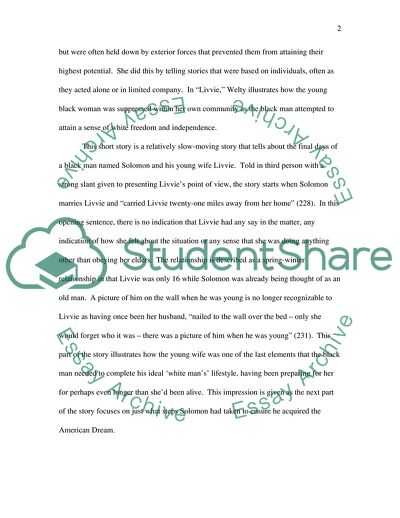Cite this document
(Analysis of Eudora Welty's Short Story Essay Example | Topics and Well Written Essays - 2000 words, n.d.)
Analysis of Eudora Welty's Short Story Essay Example | Topics and Well Written Essays - 2000 words. https://studentshare.org/literature/1722929-eudora-weltys-short-story-livvie
Analysis of Eudora Welty's Short Story Essay Example | Topics and Well Written Essays - 2000 words. https://studentshare.org/literature/1722929-eudora-weltys-short-story-livvie
(Analysis of Eudora Welty'S Short Story Essay Example | Topics and Well Written Essays - 2000 Words)
Analysis of Eudora Welty'S Short Story Essay Example | Topics and Well Written Essays - 2000 Words. https://studentshare.org/literature/1722929-eudora-weltys-short-story-livvie.
Analysis of Eudora Welty'S Short Story Essay Example | Topics and Well Written Essays - 2000 Words. https://studentshare.org/literature/1722929-eudora-weltys-short-story-livvie.
“Analysis of Eudora Welty'S Short Story Essay Example | Topics and Well Written Essays - 2000 Words”. https://studentshare.org/literature/1722929-eudora-weltys-short-story-livvie.


